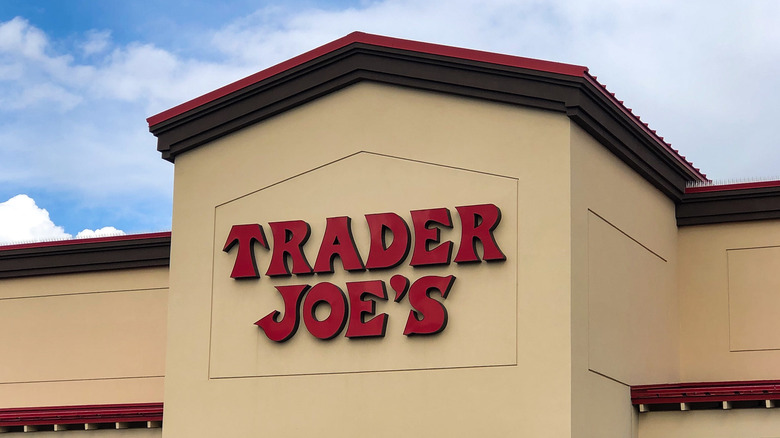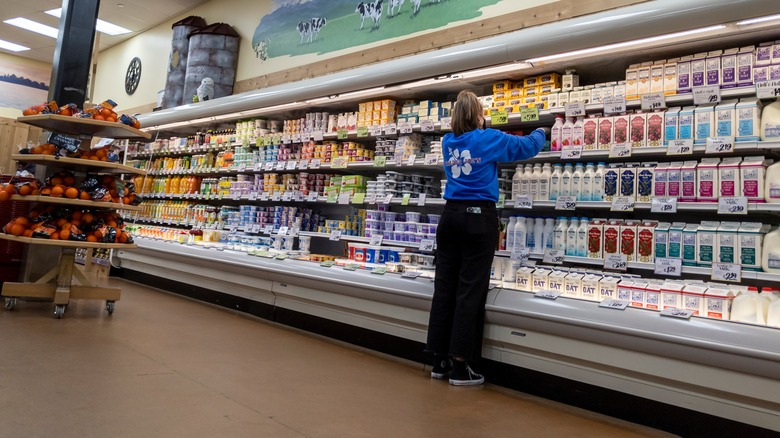How Trader Joe's Is Preventing Food Waste
The United States is an economic powerhouse, having the highest GDP of any nation and a 23.93% share of the total global economy, according to Investopedia. With such monetary power, it seems like the U.S. should be able to produce or import enough food for the entire population, and according to Feeding America, it actually does.
Despite this, 34 million Americans face food insecurity. One of the main driving factors in this disturbing statistic is food waste, which takes many forms. It can happen at the agricultural level when decreases in demand leave crops rotting in their fields, and it can also happen in our homes when we cook more food than we can handle and fail to consume the leftovers.
The U.S. Department of Agriculture (USDA) estimates that 30-40% of the national food supply goes to waste. Edible excess could be used for hunger relief, and expired foods could be recycled into bioenergy, bioplastics, and compost. However, Recycle Track Systems (RTS) reports that food takes up more space in American landfills than any other products.
This not only exacerbates food insecurity but climate change as well. When we waste food, we also waste the water and energy used to produce it, and food that lies in landfills contributes to nitrogen pollution. We need to change our habits, fast, and one of the nation's most popular grocery chains has risen to the challenge.
Trader Joe's has cut its food waste to 0.5%
Trader Joe's stands out from other grocery chains with its unique store brand products and low prices, but it has also distinguished itself through waste management. The store's website claims that in 2021, TJ's managed to sell, donate, or compost 99.5% of its total stock.
Of course, they cannot account for sales that were ultimately wasted by the customer, a reminder that we all have a role to play in avoiding food waste. Nevertheless, Trader Joe's efforts could be a valuable model for other grocers, starting with food donations.
According to Planet Forward, every Trader Joe's location has a donation coordinator who makes sure that any products that are about to reach their expiration date are pulled from shelves and donated to local food pantries and recovery programs. It is important to note here that so-called expiration dates only indicate when food should be sold, not when they should be eaten, so the food TJ's donates is still fit for consumption.
If any food in the store does go bad, it gets composted. The store's website reports that they composted more than 17.5 million pounds of food in 2021. If that food had gone to landfills, it could have generated as much as 14 million pounds of carbon dioxide, based on the EPA Waste Reduction Model which calculates greenhouse gas emissions.
This is heartening news, but it remains to be seen whether other grocers will follow suit.

